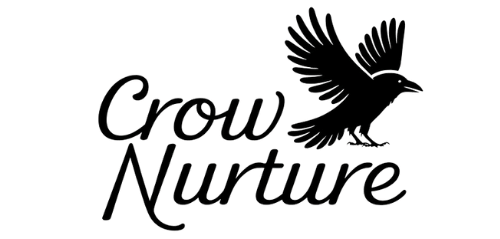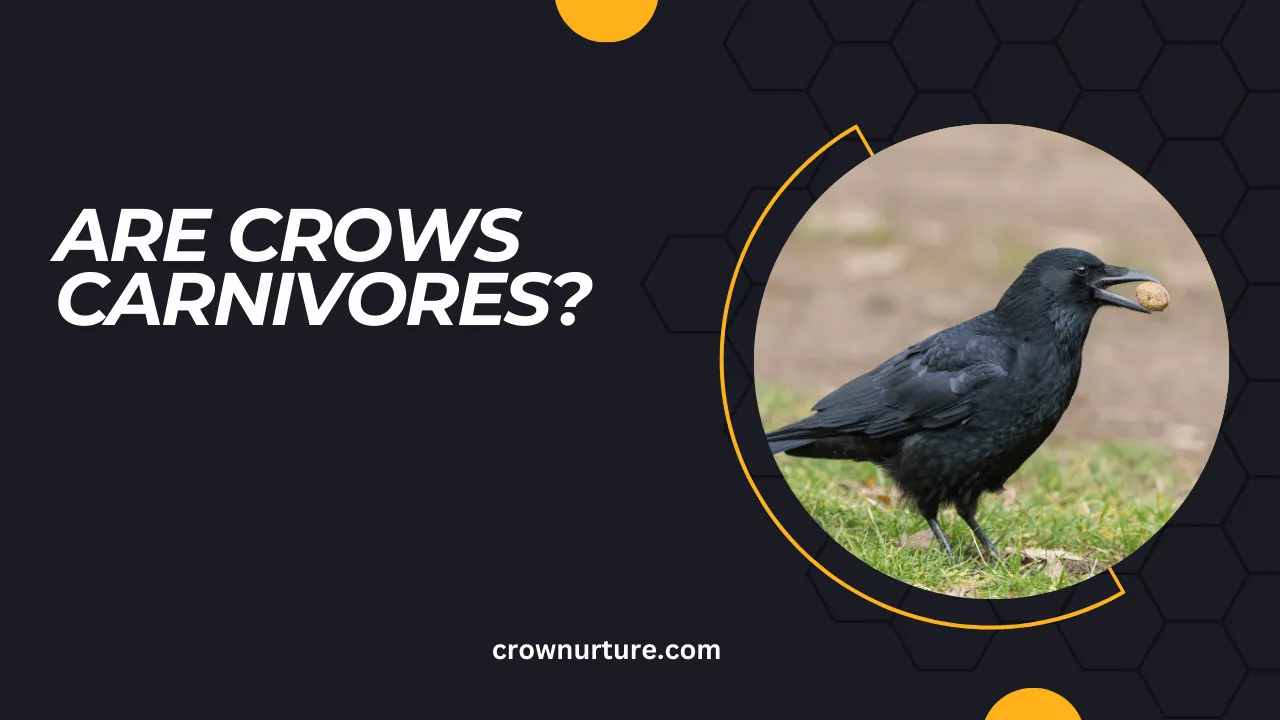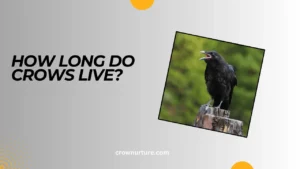Crows are more than just the black-feathered birds that caw in the distance—they are a fascinating blend of intelligence and adaptability.
Known for their scavenging skills, they often feast on discarded leftovers, small animals, and even insects. But does this mean crows are carnivores? Or is there more to their eating habits than meets the eye?
Understanding what crows eat helps us see the larger ecological picture. These birds thrive in nearly every environment, from bustling cities to quiet forests, and their diets play a big role in their success.
By exploring their food habits, we can appreciate their role in balancing nature, whether through pest control or seed dispersal. Are crows carnivores, herbivores, or something entirely different?
This article takes a deep dive into the varied diet of these intelligent birds, uncovering the science behind their eating habits and the impact of their choices on ecosystems.
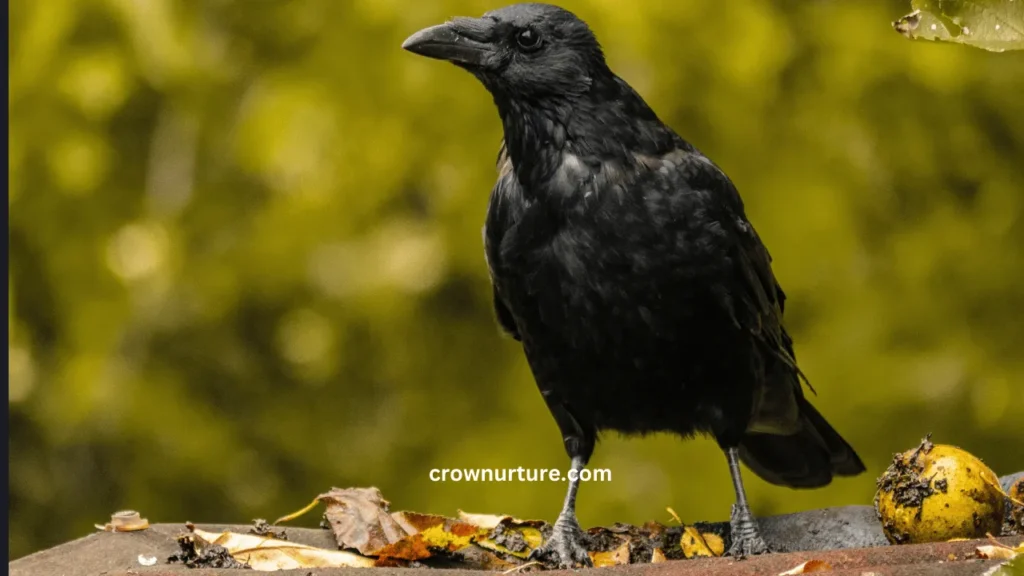
Contents
1. The Omnivorous Nature of Crows
Crows are omnivores, which means they consume both plants and animals. This dietary flexibility is key to their success in adapting to different environments.
Their ability to eat a wide variety of foods allows them to thrive in urban settings where food availability is unpredictable. Whether it’s scavenging on scraps, foraging for seeds, or hunting small animals, crows make the most of what’s around them.
This omnivorous diet also provides evolutionary advantages. It ensures they always have food, regardless of the season or changes in habitat, making them resilient to environmental changes.
2. Plant-Based Diet
Crows may be seen pecking at fruits and berries, especially during summer and fall. These foods are rich in energy, making them a favorite when they’re readily available.
In agricultural areas, crows often feast on seeds and grains, which can sometimes cause conflict with farmers. They are particularly attracted to cornfields, wheat, and other crops.
During harsh winters, plant-based food becomes critical. Crows rely on stored nuts and seeds, scavenging for anything edible, including fallen fruits that have survived the cold.
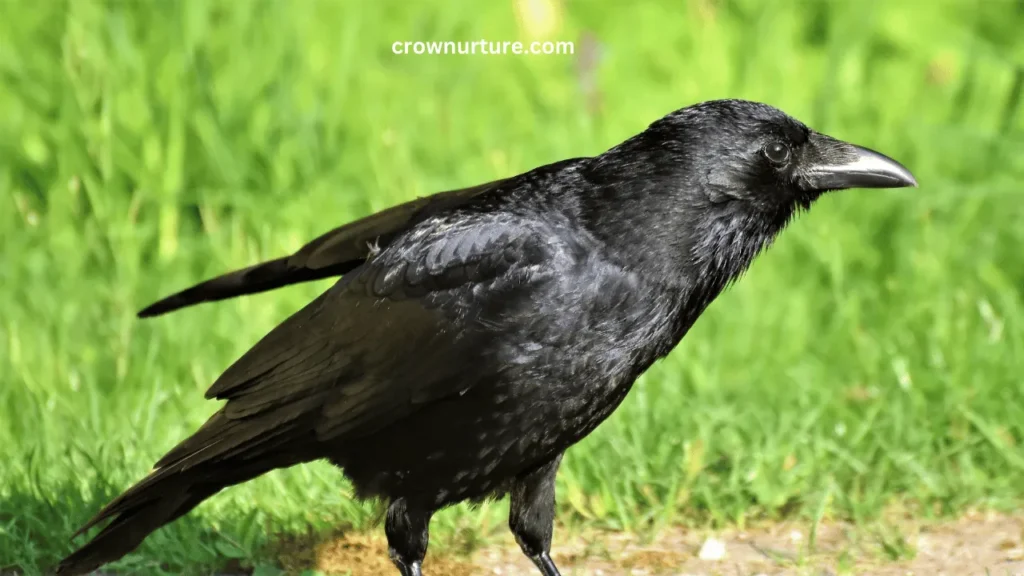
3. Animal-Based Diet
Crows’ carnivorous tendencies come into play when they consume insects, which make up a significant portion of their diet, especially in the breeding season. Insects provide essential protein for growing chicks.
Crows are opportunistic hunters, preying on small vertebrates like mice, frogs, and even smaller birds when the opportunity arises. This behavior showcases their resourcefulness and ability to adapt.
Another striking aspect of their diet is their role as scavengers. Crows often consume carrion, cleaning up dead animals from roadsides and fields, which helps maintain ecological balance.
4. Factors Influencing Diet
Seasonal changes greatly affect what crows eat. In summer and fall, plant-based food like berries is abundant, but winter forces them to rely more on carrion and human-provided resources.
The habitat also plays a role. Urban crows might scavenge from garbage bins or eat fast food leftovers, while rural crows are more likely to forage for insects and seeds in open fields.
Human activities significantly influence crow diets. Bird feeders, agricultural practices, and even litter provide additional food sources, often altering their natural eating habits.
5. The Role of Crows in the Ecosystem
Crows contribute to seed dispersal by consuming fruits and excreting seeds, helping plants spread to new areas. This behavior supports forest regeneration and biodiversity.
As natural pest controllers, crows help reduce insect populations, benefiting both agriculture and natural ecosystems. Their consumption of agricultural pests often outweighs the damage they cause to crops.
Through scavenging, crows play a vital role in cleaning the environment. By feeding on carrion, they prevent the spread of diseases and maintain a cleaner habitat.
Conclusion
Crows are not strictly carnivores; they are omnivores with a highly adaptable diet that includes both plants and animals. This flexibility has made them one of the most successful bird species, thriving in environments as varied as dense forests and urban landscapes.
Their dietary habits contribute significantly to ecosystems, whether through pest control, seed dispersal, or scavenging. By understanding their diet, we not only appreciate their intelligence but also their critical role in maintaining ecological balance.
So, the next time you see a crow scavenging or foraging, remember—it’s not just surviving; it’s shaping the world around it.
FAQs
1. Are crows strictly carnivores?
No, crows are omnivores, meaning they eat both plants and animals.
2. What do crows eat in urban areas?
In urban settings, crows eat leftovers, garbage, insects, and seeds from bird feeders.
3. Do crows hunt live prey?
Yes, crows can hunt small animals like mice, frogs, and birds, showcasing their adaptability.
4. What plant foods do crows prefer?
Crows enjoy fruits, berries, seeds, and grains, which they consume seasonally.
5. Are crows beneficial to farmers?
While they may damage crops, crows also control pests, which can benefit agriculture overall.
6. Do crows eat carrion?
Yes, crows are scavengers and consume dead animals, helping clean the environment.
